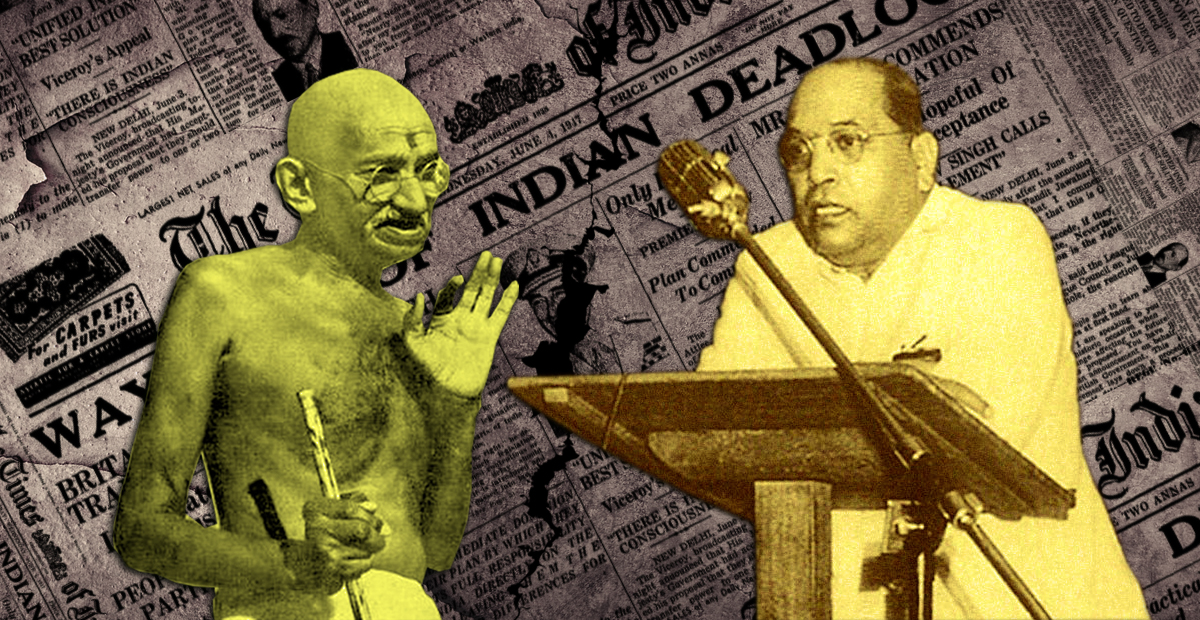Modern Indian History from about the middle of the eighteenth century until the present- significant events, personalities, issues.
In News:Why Ambedkar and Gandhi disagreed on question of separate electorates for Scheduled Castes
Discuss the ideological differences between Mahatma Gandhi and Dr. B.R. Ambedkar regarding the caste system and their impact on the political representation of Scheduled Castes in India.
Mahatma Gandhi and Dr. B.R. Ambedkar were two pivotal figures in India’s struggle for independence and social reform, yet they held fundamentally different views on the caste system and its implications for political representation.
A. Ideological differences
I Approach to caste:
- Gandhi viewed the caste system as a necessary social structure that could be reformed. He denounced untouchability but believed in retaining the varna system, advocating for the upliftment of lower castes through moral persuasion and social reform.
- Ambedkar, on the other hand, rejected the caste system entirely, viewing it as a tool of oppression rooted in Hindu scriptures. He argued for its complete annihilation and believed that true equality could only be achieved by dismantling the caste hierarchy.
II Political Representation
- Ambedkar advocated for separate electorates for Scheduled Castes as a means to empower them politically, arguing that joint electorates would not adequately represent their interests and would perpetuate their subservient status.
- Gandhi opposed separate electorates, fearing they would fragment Hindu society and play into British colonial strategies of “divide and rule.” He believed that lower castes should strive for broader political representation within a unified Hindu community.
III Vision for Society:
- Gandhi envisioned a society based on spiritual values and moral upliftment, emphasizing unity among all castes to achieve independence from British rule.
- Ambedkar focused on legal and constitutional reforms to address social injustices, emphasizing the need for political power as essential for the empowerment of lower castes.
B Impact on Political Representation
The ideological clash between Gandhi and Ambedkar culminated in the Poona Pact of 1932, which was a compromise that allowed for reserved seats for Scheduled Castes in legislatures while abandoning separate electorates. This compromise laid the foundation for India’s reservation system, which has evolved to include various marginalised groups.
While both leaders sought to uplift the oppressed, their differing philosophies shaped the discourse around caste and representation in India. Their legacies continue to influence contemporary discussions on social justice and equality in Indian society.
| PYQ: What was the difference between Mahatma Gandhi and Rabindranath Tagore in their approach towards education and nationalism? 2023Highlight the differences in the approach of Subhash Chandra Bose and Mahatma Gandhi in the struggle for freedom.2016 |

